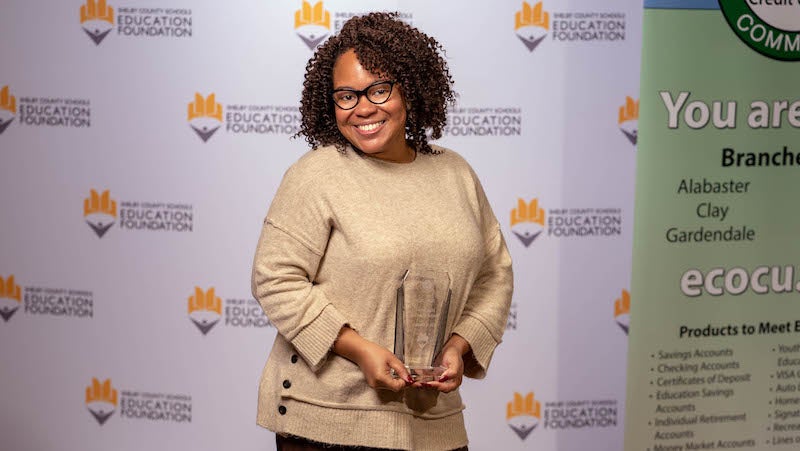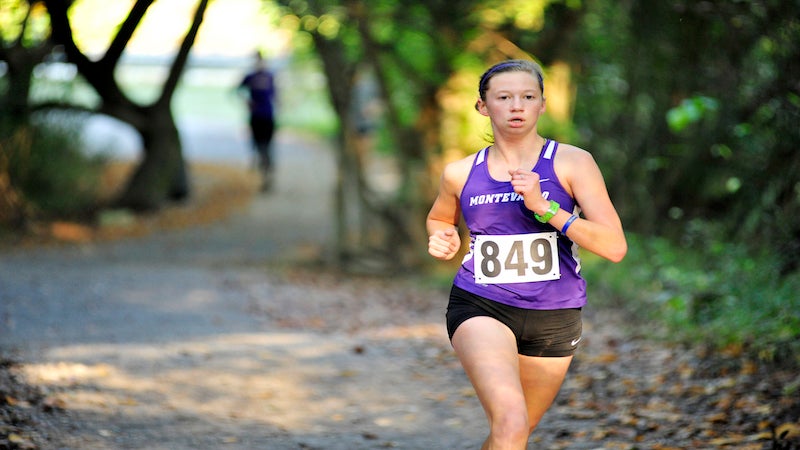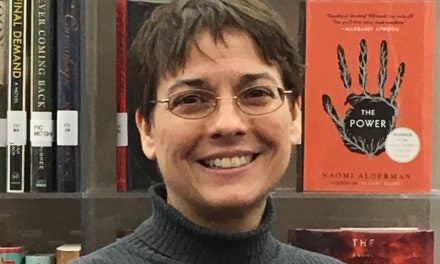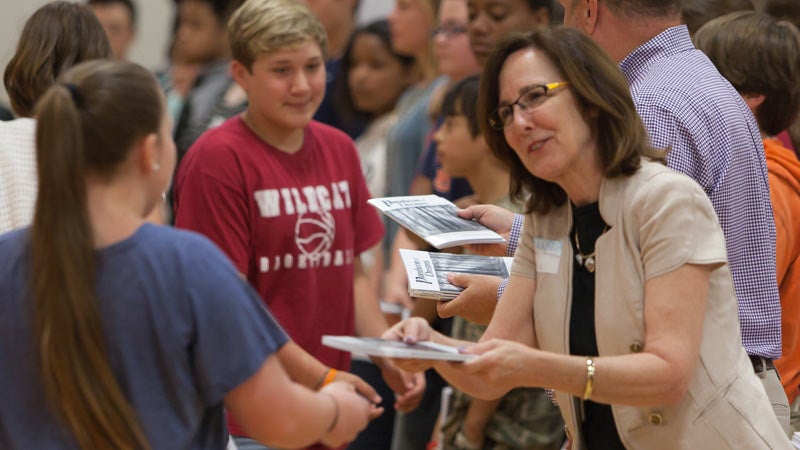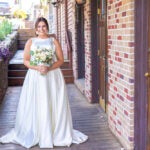Passion emanates from Celia Dozier when you speak to her, and it quickly becomes obvious why she was named 2020 High School Teacher of the Year by the Shelby County Board of Education. She taught biology and forensics at Helena High School for two years, and this school year you can find Celia teaching biomedical science at the school system’s Career Technical Educational Center —which she says “gives students an opportunity to gain valuable work skills I think all kids need and to earn credentials to go out into the work force and to do well in college and in a career.” We talked with her to learn more about her classroom and how she got there.
How did you get into teaching?
Teaching is my second career. I have a bachelor’s in health care administration and for 10 years worked in skilled nursing facilities as a business office manager. I enjoyed that but always shave had a passion to teach. I decided to venture into the master’s program at Samford. When I talked to the admissions counselor, it was a perfect fit. During my last semester at Samford, I got the position as long-term substitute at Helena, and it reaffirmed I had made the right decision. I got hired on at Helena after that.
What made you teach science and what are you passionate about in the classroom?
I attended John Carroll and grew up middle class, but I saw few African Americans represented in science. It was important for me to be a representative for other people of color in a STEM field. What I love most about the classroom is not just the content, but developing an excellent rapport with my students. Because I am so focused on building those relationships first, I am able to be a better teacher.
Can you tell us some about what happens in your classes?
I love CTEC because I have so much freedom to make my classroom what I want it to be. We do hands-on stuff everyday. For my forensics class they walk into a crime science lab and have to analyze fingerprints and blood splatter and DNA. I didn’t see some of those things until college. At CTEC they really want them to have those real-world applications. In anatomy, they do dissections, but we also look at the pathology of diseases. Senior year I have them take the Certified Clinical Medical Assisting test. When they pass, they are automatically certified for medical assisting jobs in hospitals, so it gives them foundation for work experience after high school. I also teach Intro to Biotechnology, where we look at the fusion of biology and technology, and I take them on an ethical exploration as well.
Can you tell us about the summer program you teach in addition to teaching summer school in Shelby County?
Gear Up is a program at Samford that caters to Birmingham City Schools students who might not have the same resources as other systems. I have taught sciences to them in a two-week program to get them experience in science math and reading and to improve their ACT scores. The hope is that we are able to close the achievement gap. Being in Shelby County, students are afforded with opportunities that other systems are not, and I think it’s important to give back.
What’s on the horizon for you?
I am in the process of adopting brothers, ages 3 and 1. I am working on my Ph.D. in instructional leadership with a concentration on instructional technology, and it’s my hope to influence teachers to not necessarily teach how you were taught. Kids do not learn from answering questions in a textbook, so we have to find those ways that assist them in learning and cater to their different learning styles.

